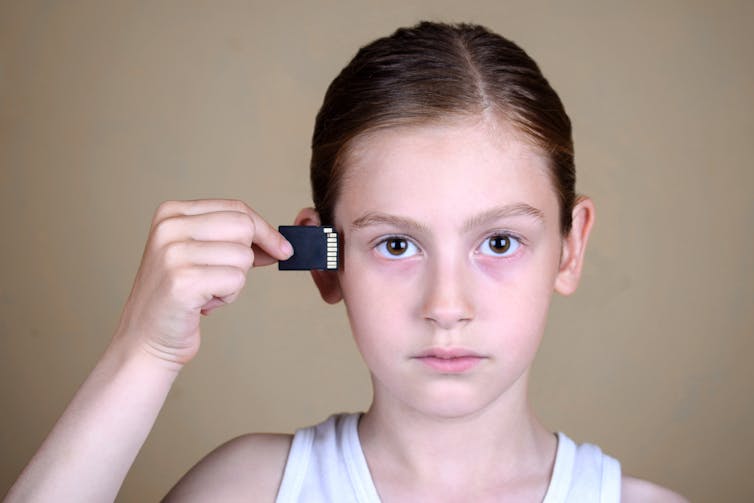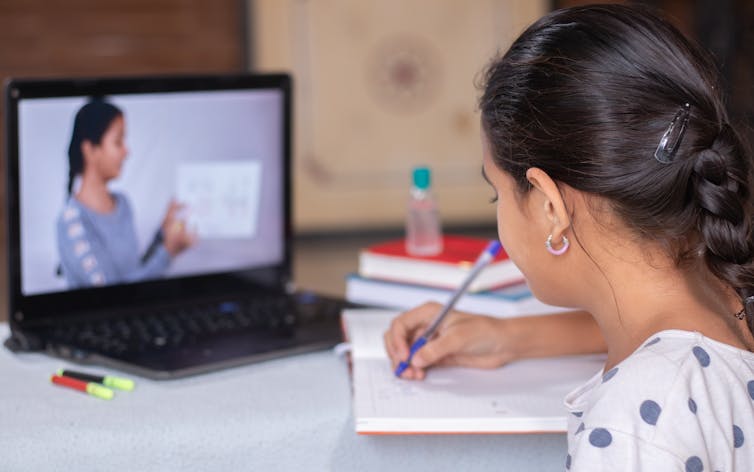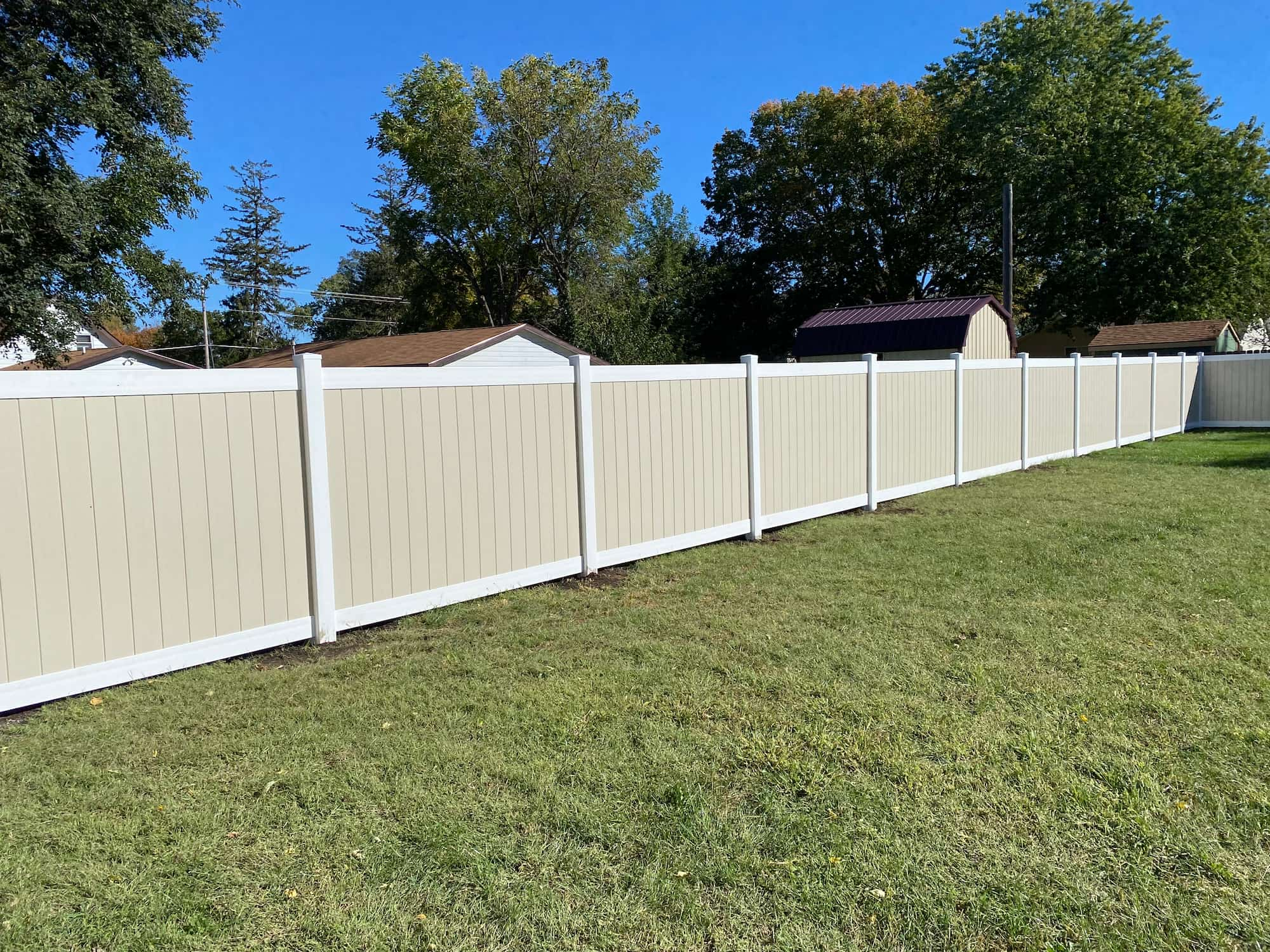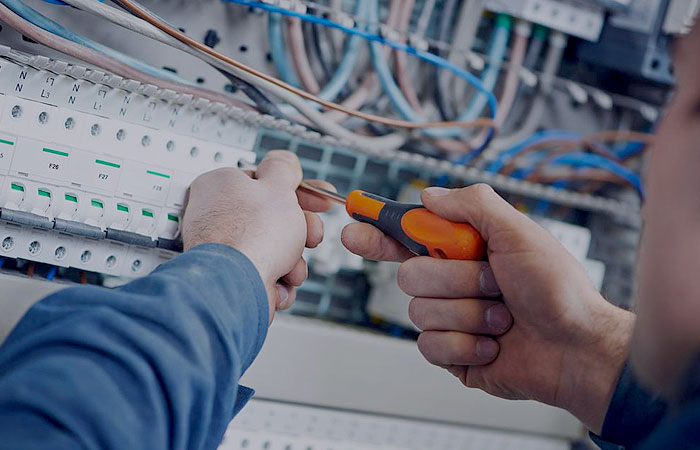To find out at dwelling, young ones need extra than just teaching elements. Their brain will have to also adapt to the context
Analysis during the 1st stage of remote educating in Victoria documented some college students found the workload “too high”, missed interactions with peers, felt their pondering ability was impaired, and described a problems coping with study and lifestyle extra typically.
All these aspects impact on students’ feeling of nicely-becoming. Although studying remotely, some children professional heightened nervousness, anxiety and other psychological reactions these kinds of as depression.
These reactions are not normally a reaction to the educating alone. Typically, educational institutions and academics took care to put together applicable, proper understanding and educating elements. Challenges like a deficiency of aim and heightened anxiety could also be the consequence of a problem finding out in an alternative environment.
These issues are constant with students missing the autobiographical episodic memory essential to information productive discovering in the distant context. Their autobiographic memory, which contains the association that college is a spot of learning, could not use to the home. Even so, we can train it to.
What is autobiographical memory?
Our autobiographical episodic memory is the brain’s report of our activities. It incorporates what we have finished, the contexts in which we did it and how we did it. It also contains the thoughts we hyperlink with functions and how determined we have been.
We use this memory continually in our life. It tells us what to count on when we go into a new bar or espresso store for the to start with time, how to cope when an equipment at dwelling breaks down and how to organise ourselves in a social conversation.
Learners who have attended school have an autobiographical episodic memory of what occurs in a classroom. Their activities involve interacting with friends, responding to directions from their academics about how to direct their discovering action, following routines and schedules these as carrying out unique pursuits at particular times, and behaving in particular methods.
Examine a lot more:
We’re able of infinite memory, but the place in the brain is it saved, and what sections enable retrieve it?
The encounters also include a assortment of alerts, supports and interactions these kinds of as the entire body language, eye contact, and talking tones utilized by teachers and peers — as nicely as the overall classroom environment.
These experiences are saved in students’ autobiographical episodic memory. They are recalled any time the university student is in the classroom context and direct and emphasis the finding out activity. They operate in addition to, and in parallel with, the the genuine instructing and the material.

Shutterstock
Learners also have stored, in their episodic memory, their ordeals at household. This is their record of how they stay with their relatives, what to do and how to behave acceptably at property, how to be organised in the residence, how to get around obstructions and resolve troubles in the house condition and also what to assume.
During the time period of distant learning, pupils, for the substantial aspect, experienced educating elements geared up for them. But a lot of nevertheless necessary the programs and supports provided in the classroom context. These pupils knew what was missing but had been probably unable to compensate for it by spontaneously adapting their episodic memory to match the changed context.
Other college students located distant educating a worthwhile expertise. It is attainable these college students experienced much more adaptable episodic memories at household. They very likely valued becoming capable to self-organise and regulate their mastering schedules. They may well have liked possessing the possibility to system their day and function at their own pace.
Browse much more:
Researching for exams? This is how to make your memory get the job done for you
We really do not know for guaranteed the discrepancies between the finding out profiles of these who had been and weren’t in a position to adapt to the adjusted context but we can assume episodic memory could participate in a portion in the distinct encounters students experienced.
So, why does this issue?
Lecturers and universities have set a lot of function into coming up with training and discovering supplies pupils could use in their residences. Students’ experiences counsel these materials weren’t ample for all students to adapt their classroom activities to healthy the dwelling surroundings.
As a outcome, numerous pupils would not have shaped beneficial or effective episodic reminiscences of discovering at house.
The current phase of distant teaching has occur to an conclude for Australia. Nevertheless, we may well see additional pupils researching from dwelling periodically, as faculties shut owing to outbreaks in the foreseeable future. Or it could be required in Australia in the celebration of a third wave.

Shutterstock
Remote teaching could enable pupils construct the episodic memory they need to have for remote learning. Lecturers can do this by encouraging pupils recognise the discovering supports in the classroom and kind matching types in the dwelling. It is also handy to put in location the conditions for prosperous discovering activities at household.
Here are some approaches they could do this:
Teachers can manual students to recognise what aids them discover in the classroom. They can do this by
-
getting to be mindful of supports these as owning regular specified periods for doing unique pursuits
-
possessing a mastering activity damaged into scaled-down steps
-
steering clear of distractors or performing on a task to completion.
They can then ask the students to counsel how they could have matching supports in their residence context. For instance, they can encourage pupils to
When starting up a undertaking remotely, instructors can question students to recall how they did comparable things to do in the classroom. Students can master to ask by themselves: How did I do equivalent tasks in the previous? What will the consequence appear like? What will I do to start with and then 2nd and previous? This could assistance learners transfer their classroom activities to their household.
Learners usually have a lot more successful residence learning experiences when they have been taught to monitor their development as they get the job done by means of a endeavor. These activities increase to their episodic memory. Academics can stimulate them to say what they know now that they did not know before.
Examine much more:
Young children with autism may perhaps use memory otherwise. Comprehension this could assistance us train them
Ordeals that record what occurred in a selected position and time are saved in illustrations or photos. When presented a understanding job through distant teaching, students can also be encouraged to visualise how they will complete it.
For instance, if they require to write a paragraph about a character in a novel, the trainer can question students to visualise the character in certain contexts, remember phrases that describe the character’s characteristics, compose sentences about them and organise their being familiar with all over primary strategies. This provides learners a “virtual experience” of the learning activity that contains a pathway to job completion.
Several students will, from now on, need to have the skill to study remotely. This is even correct unbiased of COVID, and applies to studying for exams at house or accomplishing homework. Instructors and parents really should be sensitive to the simple fact autobiographic episodic memory has a role to engage in in effective discovering.





